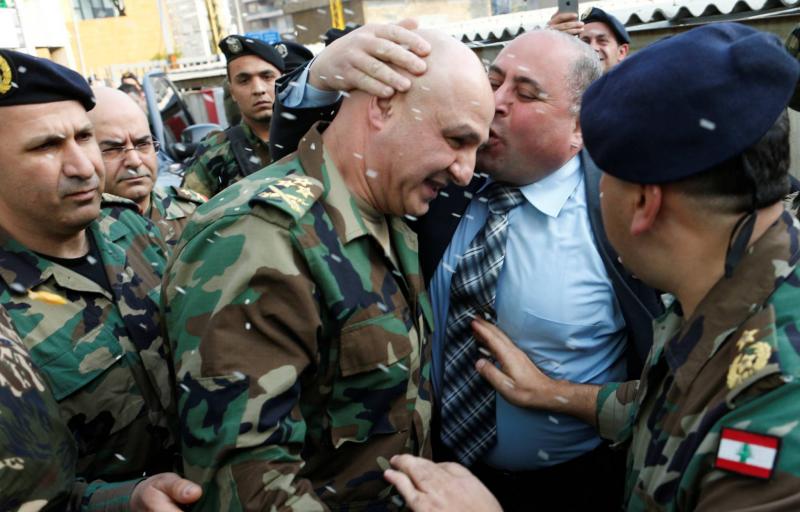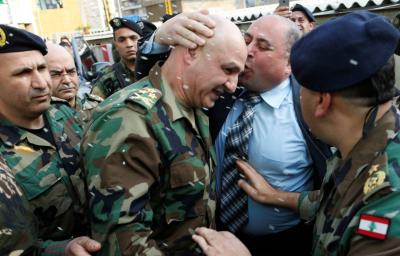Despite no voice being louder than the call of the field and the anticipation of developments on the southern front with occupied Palestine, as well as potential repercussions from developments in the Gaza Strip on the Lebanese arena, the extension of Army Commander General Joseph Aoun’s mandate or the appointment of a new commander has become a subject of debate in the political scene in Beirut. Given the circumstances, it is essential not to succumb to the paralysis of the military institution, which borders on clinical death. Serious efforts to find a solution for the security vacancies, particularly in the army leadership, began about a week ago, just before General Aoun's term is set to end as he retires at the beginning of the new year.
Two days ago, these efforts encountered a hurdle with an urgent correspondence from outgoing Prime Minister Najib Mikati to Defense Minister Maurice Slim, Justice Minister Henry Khoury, and the Army Command, prompting Minister Slim to express his objection, asserting his readiness to provide comprehensive proposals when the time comes. The Defense Minister's words hold a single meaning: attempts to reach an agreement on this matter have not reached the desired conclusions. The initiative led by the head of the Free Patriotic Movement, MP Gebran Bassil, toward the political forces regarding the fate of the military institution's leadership has not taken its political or administrative course.
The approval of a bill in the Parliament to extend the retirement age by one year for officers of all ranks (which would allow the current army commander and all colonels to remain in their positions, including the Director General of Internal Security Forces and the Deputy Director of State Security) is not feasible due to the Christian blocs' boycott. Sources indicate that reports from the Lebanese Forces bloc suggesting that they will attend a legislative session solely for the purpose of extending the current commander’s term are incorrect. Furthermore, there is an agreement and convergence between Bassil and the head of the Marada Movement, Sleiman Franjieh, on the rejection of Aoun’s extension.
The agreement faces Bassil's insistence on a government decree signed by all ministers. Consequently, sources disclosed to Al-Akhbar newspaper about a "triple deal" that has begun to be whispered about, which includes new appointments in three positions: the army leadership, the General Directorate of General Security, and the General Directorate of Internal Security Forces. This is something Bassil does not oppose, as he wants to nominate the new leader. Prime Minister Najib Mikati also does not object, backing the name of Major General Khaled Hamoud, head of the Information Division, to replace Major General Imad Othman. It is said that former Progressive Socialist Party leader Walid Jumblatt may demand the appointment of a chief of staff who is close to him, having previously expressed willingness to accept Major General Hassan Aouda of the 11th Brigade, who has strong ties to the Aounists.
However, the details of this deal have yet to be specified, especially since each political party wants it to follow a specific path. The Prime Minister and Parliament Speaker Nabih Berri prefer a cautious approach, starting to gradually fill the vacancies beginning with the Chief of Staff in a Cabinet session that Hezbollah will not boycott, whereas Bassil is striving to expand towards filling vacancies in the leadership council and the military council. He shows no objections to extending the appointments to other security positions, provided that the government conducts the appointments according to the formula that prevailed during former Prime Minister Tammam Salam's government, with decrees signed by all ministers to ensure that no decision can pass without the signatures of all ministers, meaning the presence of the Free Patriotic Movement's ministers. However, none of the political parties “seem willing to respond to Bassil's demands or accept new political equations under the pressure of war.”




